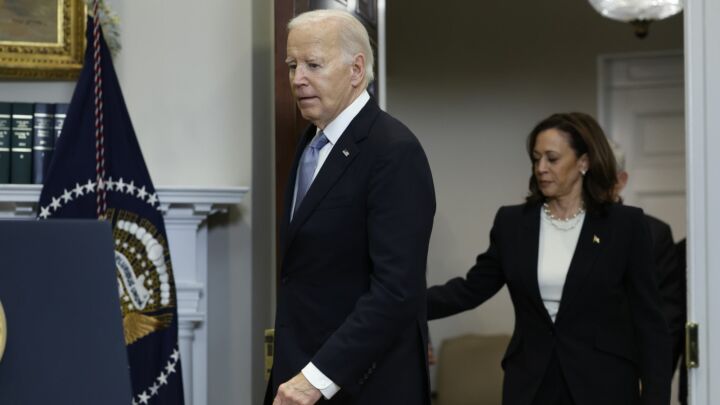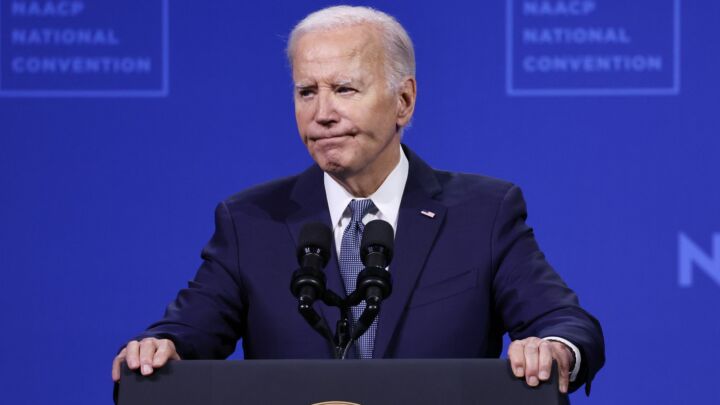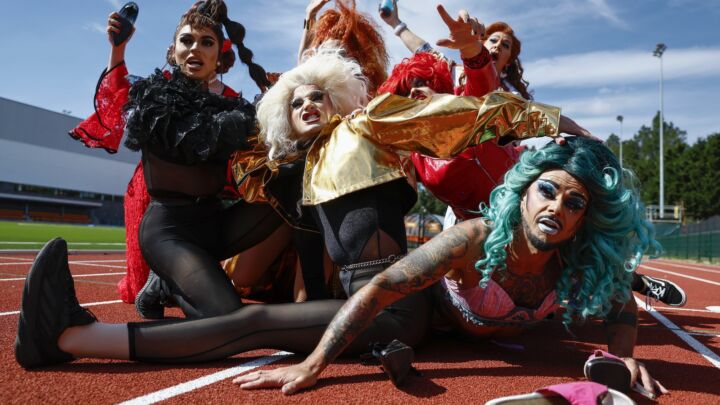Alison Rose and the scourge of Girl Boss feminism
No, the NatWest CEO was not ‘bullied’ for being a woman.

Dame Alison Rose has had a difficult week. The former chief executive of NatWest was forced out of her job in the early hours of Wednesday morning for her role in the Nigel Farage ‘debanking’ scandal.
In the case of Farage vs the banks, most sensible people are not on the side of the banks. After all, Farage has now been vindicated in his claims that Coutts, an elite private bank owned by NatWest, closed his account due to his political views. Meanwhile, Rose admitted this week that, in an apparent attempt to rubbish the story, she told the BBC’s Simon Jack that the decision to exit Farage was ‘solely a commercial one’. In doing so, she misled the BBC and may have broken the bank’s own confidentiality rules.
Commentators and politicians across the political spectrum have come forward to defend Farage because the precedent set by a politically choosy bank (and a leaking CEO) is a dangerous one. Most people agree that banks shouldn’t be shutting down the accounts of individuals they disagree with.
But that is not how Labour’s Rachel Reeves sees it. When asked about the Farage affair on Channel 4 News earlier this week, the shadow chancellor decided to defend Rose. Reeves praised her tenure as NatWest’s ‘first female chief executive’. Apparently, Rose had actually done a ‘good job’ at NatWest and the moves to have her ousted were tantamount to ‘bullying’.
When asked whether it was a problem that Rose had leaked private information about a customer to the BBC, Reeves said that she didn’t know ‘the details of this specific case’. She then told viewers that, if she were chancellor, she wouldn’t have been ‘picking a fight with banks on behalf of Nigel Farage’.
Essentially, what Reeves is saying is that Rose should not be criticised because she’s a powerful woman. Never mind her manifest failings – never mind the wider debanking scandal – Reeves clearly feels that powerful women need to stick up for each other.
This kind of Girl Boss solidarity is nothing new, of course. So much of modern feminism is tailored to defend the interests of elite women. Books like The Authority Gap, by Mary Ann Sieghart, bemoan the lack of respect shown to women in the boardroom. BBC presenters on six-figure salaries claim to be victims of a gender-pay gap. The minor inconveniences faced by an overclass of women are presented as problems afflicting the whole of womankind. Meanwhile, the rest of us are expected to overlook the shortcomings and failings of these powerful women in order to shore up the sisterhood.
This Girl Boss feminism is especially pernicious in politics. For instance, although the careers of both New Zealand’s Jacinda Ardern and Scotland’s Nicola Sturgeon ended in failure, they are still lauded as role models for women.
Ardern resigned as prime minister earlier this year to escape an expected drubbing in an upcoming election. She will largely be remembered for imprisoning and impoverishing her citizens for months on end with her draconian Zero Covid lockdowns. Meanwhile, Sturgeon had to call it quits in February, after her gender self-identification policy led to male rapists being sent to women’s prisons. Since then, she has been arrested in relation to a party-financing scandal. Nevertheless, when they stepped down, both were praised as heroes of a global ‘feminist moment’. The fact that they wore skirts seemed to matter more to commentators than their actual political legacies.
Whether it’s Sturgeon, Ardern or the ex-head of NatWest, giving elite women a free pass, simply for being women, does real damage to the fight for women’s equality. It suggests that women cannot perform at the same level as men, and need special measures, considerations and sympathy when we fail. And it leads to absurdities like Labour, supposedly the party of the people, leaping to the defence of a disgraced elite banker.
Rachel Reeves’ defence of Alison Rose was Girl Boss feminism at its absolute worst.
Ella Whelan is the author of The Case For Women’s Freedom, the latest in the Academy of Ideas’ radical pamphleteering series, Letters on Liberty.
Picture by: Getty.
To enquire about republishing spiked’s content, a right to reply or to request a correction, please contact the managing editor, Viv Regan.









Comments
Want to join the conversation?
Only spiked supporters and patrons, who donate regularly to us, can comment on our articles.